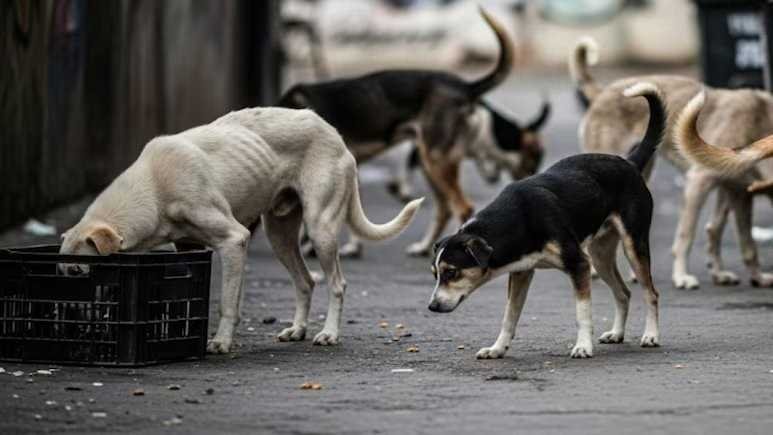Commitment to Veterans’ Welfare
In a significant step towards reinforcing the welfare ecosystem for India’s armed forces veterans, the Department of Ex-Servicemen Welfare (DESW), Ministry of Defence, has signed a Memorandum of Understanding (MoU) with the Quality Council of India (QCI). The agreement, signed on August 26, 2025, in New Delhi, highlights the government’s continued commitment to its guiding principle of “Quality in Service – Dignity for Veterans.”
The partnership is aimed at strengthening the delivery of pension, healthcare, resettlement, and welfare services for more than 63 lakh veterans and their dependents, ensuring that ex-servicemen and their families benefit from efficient, transparent, and reliable systems.
📡LIVE Now 📡
Press Conference by Union Minister @DrJitendraSingh
📍National Media Centre, New Delhi
Watch on #PIB's 📺
➡️Facebook: https://t.co/ykJcYlNrjj
➡️YouTube: https://t.co/DsjKhWmxJZhttps://t.co/uFLEfPXlHv— PIB India (@PIB_India) August 27, 2025
Role of the Quality Council of India
Under the MoU, the Quality Council of India will provide digital evaluations, impact assessments, and evidence-based policy recommendations to improve service delivery mechanisms within the DESW. QCI’s expertise in quality assurance and benchmarking will help identify gaps, modernize processes, and ensure accountability across welfare-related services.
By deploying data-driven tools, QCI will not only measure the effectiveness of existing programs but also propose reforms that align with the evolving needs of veterans in areas such as healthcare, pensions, re-employment, and skill development.
DESW’s Coordinating Role
On its part, the Department of Ex-Servicemen Welfare will facilitate data access and inter-agency coordination. This includes working closely with State Governments, Zila Sainik Boards, Armed Forces Headquarters, and empanelled hospitals.
Through this collaborative framework, DESW aims to remove bottlenecks in welfare delivery and ensure that veterans, regardless of where they live, have equal access to essential benefits and services.
Focus on Pension and Healthcare Services
One of the central objectives of the agreement is to enhance the efficiency and timeliness of pension delivery, a vital concern for retired service personnel who rely on these payments for financial stability. By leveraging digital platforms, QCI will help standardize procedures and reduce delays in pension processing.
In addition, the MoU prioritizes healthcare delivery by strengthening networks of empanelled hospitals and improving monitoring systems. Veterans and their families are expected to gain from better access to quality medical facilities, reduced paperwork, and transparent grievance redressal mechanisms.
Creating Opportunities Beyond Service
Beyond financial and medical welfare, the initiative also focuses on resettlement, re-employment, and entrepreneurship opportunities for veterans. With many ex-servicemen seeking new roles after retirement, the collaboration will help design programs that match their skill sets with civilian job markets.
Special emphasis will be placed on creating pathways for veterans to become entrepreneurs, leveraging schemes that support start-ups and small businesses. This not only aids in their personal rehabilitation but also contributes to the national economy.
Strengthening Institutional Frameworks
The agreement also envisions reinforcing the role of State and District Sainik Boards, which act as the first point of contact for veterans at the grassroots level. By standardizing practices and ensuring better coordination among these boards, DESW and QCI hope to create a more uniform and responsive welfare delivery system nationwide.
Such reforms will allow local institutions to address grievances quickly, improve service accessibility, and maintain closer engagement with veterans and their families.
A Step Towards Evidence-Based Policy
An important feature of the MoU is its emphasis on evidence-based policymaking. By conducting detailed impact assessments and evaluations, QCI will provide actionable insights that can guide future reforms in veteran welfare. This data-centric approach is expected to help the government craft policies that are more inclusive, practical, and responsive to the community’s needs.
Conclusion
The MoU between the Ministry of Defence and the Quality Council of India represents a landmark initiative in veteran welfare. By combining DESW’s administrative reach with QCI’s quality assessment expertise, the government aims to ensure that veterans—who have dedicated their lives to national service—receive the dignity, care, and opportunities they deserve.
This collaboration is not just about enhancing systems but about reaffirming the nation’s gratitude to its ex-servicemen and their families. With improved healthcare, pension services, and livelihood opportunities, the initiative marks a decisive move towards creating a more robust and compassionate support structure for India’s veteran community.








